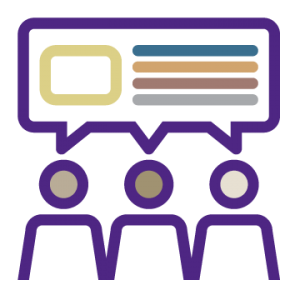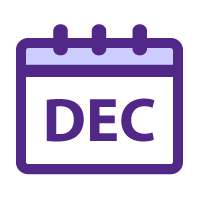Lori Goodson, Editor
Mary Hammel, Technical Editor
Category: November 2020
In the Classroom: Shelby Carpenter

Name: Shelby Carpenter
Location: Jackson Heights Elementary, North Jackson USD 335, Holton, KS
Class/content area taught: First grade
What are you most excited about with your new career? I am most excited for the opportunities to build my students up and help them become the best versions of themselves. I deeply value relationships and believe the connections I foster with my students will help them grow into outstanding, well-rounded, and wholesome members of their community.
What do you enjoy most about teaching? I truly enjoy the moments when my students understand their own potential. That “aha!” moment when the lightbulb comes on in their little brains and they realize their capabilities. I know they can do anything they put their minds to, but watching my students make that connection for themselves is heartwarming.
What are some specific things your school district has done to support you? From the moment I accepted a position at Jackson Heights Elementary, I have received nothing but genuine support and care from individuals throughout the district. They have connected me with other first-year educators in the district, sent me to workshops to prepare for this upcoming school year, and above all else have taken sincere initiative to build a relationship with me. I am grateful to be a part of a community that believes in me as an educator and motivates me to strive for greatness.
What are some specific things you believe KSU especially helped prepare you for your new career? Whenever anyone asks me where I went to college, I am always excited to share about K-State. The College of Education prepared me in a myriad of ways to become a teacher. But, the one thing I think made all the difference was how soon I got into classrooms. From a very early point, I was enrolled in education courses allowing me to volunteer in classrooms, tutor students in after school programs, co-teach with my peers, and much more. These courses provided opportunities to apply the knowledge I gained in class; I was able to begin growing into the type of educator I wanted to be. I am thankful for these real-life, learn-by-doing experiences that shaped a strong foundation for my career.
Are there specifics about your background that make teaching the perfect fit for you? My decision to pursue a career in education was greatly influenced by my mother, Tammi, who has worked in Special Education for nearly 20 years. Her love of serving others and giving so much of herself for the sake of her students was an inspiring influence on my life. If one day I am half as wonderful of a teacher as my mom, I will consider myself incredibly lucky.
Suggestions/encouragement for new teachers: A lot of fantastic educators have given me advice as I venture into my first year. Tips, tricks, and everything in between to keep my classroom—and sanity—in tact. But, to be honest, the best piece of advice I have received was simply this: trust yourself. Many people will have an opinion on how you should do things, what worked well for them, etc. You are in this profession for a reason and have overcome obstacles and challenges to get to where you are at the end of the day. Take a deep breath and remember why you’re here. You’ve got this.
I want to extend the best of luck to all educators, whether it’s your first year or otherwise…! It may look a bit different, but we can do it!
Bonus question, thanks to the Pandemic: How has the Pandemic shaped your classroom—the environment, safety precautions, etc.? How has it affected you as a new teacher? As COVID-19 continues to drastically shape our world, I find myself thinking about my students’ safety at a much more concentrated level. Above all else, I want my students to be safe, and now I cannot even begin to brainstorm an activity transition without thinking of their health and well-being. Will I have enough time to sanitize the materials? Can we still engage in this Kagan structure while maintaining proper physical distancing? How soon will we be washing our hands again?
Our world has changed significantly since the spring, and while COVID-19 presents its fair share of challenges, I am confident in myself and fellow educators to continue to do right by our students while still providing the best possible educational experience.
Celebrate diversity during the holiday season
 Don’t look now, but it’s almost time to flip your calendar to 2021! That’s right – for all of you first-year teachers, you’ve almost made it through half a year as a teacher! Congratulations!
Don’t look now, but it’s almost time to flip your calendar to 2021! That’s right – for all of you first-year teachers, you’ve almost made it through half a year as a teacher! Congratulations!
As we move toward winter break, keep in mind that, while we may consider this the holiday season, that definition can vary from person to person. Among the celebrations are Christmas, Hanukkah, and Kwanzaa.
Remember that, while one holiday may be celebrated by the majority of your students, we all need lessons about other cultures, celebrations and traditions. Be sure to consider the diverse group of students you have in your classroom before saturating your room with decorations or items from one culture.
Use the time to open your students’ worlds to other classmates’ beliefs. Scholastic.com suggests creating travel centers to open their world. Check out their ideas at http://www.scholastic.com/teachers/lesson-plan/winter-holidays-celebrating-diversity. Another resource provides a teacher guide on how to celebrate winter holiday: http://www.scholastic.com/teachers/lesson-plan/celebrate-winter-holidays-teaching-guide. Such an awareness can bring a greater respect and appreciation and make our huge world just a little bit smaller…and friendlier.
Here’s how you can stay up to date in your new career

As you move through the school year, don’t miss a thing! Be a part of EdCATS!
We want to help beginning and early career teachers like you thrive in your career! Check out @ksuedcats for teaching tips and to stay in touch with the COE! Check out the website at coe.k-state.edu/forever-edcats.
Don’t let the workload win!
A few of your favorite faculty members provided tips on how to manage the workload (grading papers, etc.) without sacrificing quality.
Dr. Vicki Sherbert (Secondary English/Language Arts, Speech/Theatre, Journalism)—“I learned early on to not ‘over grade’ everything. If I made a writing assignment, learned to share with students what I would be grading this time (conventions, word choice, ideas & content). I learned to focus on one or two goals or objectives.”
Dr. Brad Burenheide (Secondary Social Studies)—“Little tricks to make it more efficient when grading (a separate answer sheet so you are only dealing with one piece of paper), answering emails in bunches.”
Dr. Todd Goodson (Secondary English, Speech/Theatre, Journalism)—“During your meetings before the beginning of the year, speakers called your attention to lots of important documents that you needed to know inside and out. You probably haven’t looked at them yet. They will be online, and after you have taught a few months, they might begin to make sense to you. Take some time to look back at things like the student and faculty handbooks, the district’s negotiated agreement with teachers, and any other policy document on the district web site. Bookmark them and drop in on them now and then. The longer you teach, the more they will speak to you.”
Online options for engaging lessons
 Are you looking for some valuable online resources for your students? Several Curriculum and Instruction faculty suggest the following:
Are you looking for some valuable online resources for your students? Several Curriculum and Instruction faculty suggest the following:
Cyndi Kuhn (Online Teaching Certificate) —
1. Workshop Resources: http://www.cyndikuhn.info
2. Pinterest: http://pinterest.com/cyndidk/
3. paper.li: iPads in the Classroom: https://paper.li/cyndidannerkuhn/1315581508#!headlines
Dr. Brad Burenheide (Secondary Social Studies) —
- U.S. National Archives and Records Administration (NARA) (http://www.archives.gov)
- Gilder Lehrman Institute of American History (https://www.gilderlehrman.org)
- National Council for the Social Studies (NCSS) (http://www.socialstudies.org)
- Doingsocialstudies.com
- Any repository of primary sources
Dr. Tom Vontz (Elementary Social Studies) —
- Ed Teacher Tech (http://edtechteacher.org)
- Getty Images (http://www.gettyimages.com)
- Fact Monster (http://www.factmonster.com/encyclopedia.html)
Dr. Lori Levin (Literacy)—
- Readwritethink.org – fantastic lesson ideas and student interactives for literacy and the content areas – http://www.readwritethink.org/
- Wonderopolis.org – a site dedicated to fostering curiosity and a love for learning – https://wonderopolis.org/
- Read Kansas! – a site with lesson plans for reading and writing from the Kansas Historical Society – https://www.kshs.org/p/read-kansas/14921
Dr. Sherri Martinie (Secondary Math) —
- Illustrative Mathematics (https://www.illustrativemathematics.org)
- Mathematics Assessment Project – (http://map.mathshell.org/materials/index.php)
- NCTM Illuminations: Resources for Teaching Math (http://illuminations.nctm.org)
- Math Practice Standards resources (http://www.debbiewaggoner.com/math-practice-standards.html)
Kaylee Myers (Elementary Education) —
- Starfall (http://www.starfall.com)
- Any site that has children’s books to read on-line or interactive books
- Hubbard’s Cupboard (http://www.hubbardscupboard.org)—For beginning reading teachers, especially the mini readers and section on Environmental print.
Dr. Vicki Sherbert (Secondary English/Language Arts, Speech/Theatre, Journalism) —
Dr. Phillip Payne (Music Education) —
- http://teachonline.asu.edu/objectives-builder/
- iTunes and the App Store (these are changing every day and some are absolutely amazing!)
- Loopy and MadPad are two that are fantastic!
Faculty meeting survival tips
 At this point, you’ve probably experienced a teaching tradition—which can’t be replicated anywhere else but within the walls of your school: The faculty meeting. You’ve probably attended two to three faculty meetings, and you’re trying to figure them out. We’ll try to address some of those burning questions you have about the ever-popular faculty meeting.
At this point, you’ve probably experienced a teaching tradition—which can’t be replicated anywhere else but within the walls of your school: The faculty meeting. You’ve probably attended two to three faculty meetings, and you’re trying to figure them out. We’ll try to address some of those burning questions you have about the ever-popular faculty meeting.
- Where do I sit? With my content teachers? My new friends? My mentor (who may or may not be my friend)? The faculty member who intimidates me the most? When you start teaching, sitting down at a faculty meeting will bring back visions of your life as a fifth-grader trying to find a spot on a school bus. Uncomfortable, humbling, awkward at best. Use the same approach you did then: Look for a smiling face—one that says “I’m not gonna steal your lunch money.” And maybe one that says, “Welcome, friend!”—only probably not quite so directly. At some meetings, you’ll find it beneficial to sit with those who are teaching similar content or age group as you; other times, by all means go with the most welcoming faces.
- How much should I say at these meetings? Should I speak my mind? There is no magic rule about this, though you’re encouraged to observe for the first few meetings. Jumping in immediately with your ideas can be a risky move, no matter how earth-shatteringly amazing you believe your ideas are. Often, as a new teacher, it’s best to quietly share your ideas with a colleague, who can help you avoid any issues that may have existed long before you joined the faculty.
- How do I deal with the colleague’s running commentary throughout the meeting? Well, smiling is always a good response—it’s neutral, not too supportive, not too negative. You’re new here, so take some time to figure out the power structure of the faculty. In time, you’ll know when it’s OK to laugh out loud and when it’s time to focus on—or at least pretend to—taking more notes about the topic at hand.
- My personal favorite: The principal provided doughnuts! How many should I take? I’m starving! Start with one…then, when there’s a heated discussion about students chewing gum in class, grab another one! Remember…pace yourself!
Don’t get us wrong; often faculty meetings can be beneficial—coming together in times of tragedy, celebration, and innovation. It’ll just take some time to figure out the key players and your role in these sessions.
Pandemic publication: A milestone worth celebrating
We’re always glad to hear from our EdCATS, and we wanted to share a note from Jordan (Pulliam) Stetler, who graduated in May and is in her first year of teaching, She shared it with her professor, Dr. Vicki Sherbert, and we wanted the rest of you to read all about it:
“My incredible students just completed their first pandemic publication! As I sit here looking at this beautiful work, I am so incredibly thankful for my time at K-State and for everything I learned during my time in Bluemont Hall. I just wanted to share my first big milestone as a journalism teacher with you!”
Here’s a link to the issue so the rest of her EdCAT family can check it out: Student Publication.
Keep sending those updates!
What’s up?
Why don’t you send us a photo of you at work in your classroom! Or, do you have a question about classroom procedures? A suggestion for a topic we should address in Before the Bell? Want to add your name to our mailing list? Or provide a different email for our list? At the very least, just email and say hi!
And thanks to all of those who have emailed! We love the updates!
Early-career teachers, feel free to jump in and offer suggestions to those who are following your career choice!
We’d love to hear from you, so please email us at lagoodson@k-state.edu.
Go, COE Cats!
